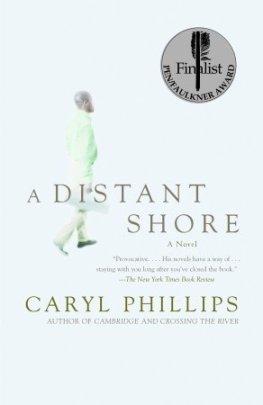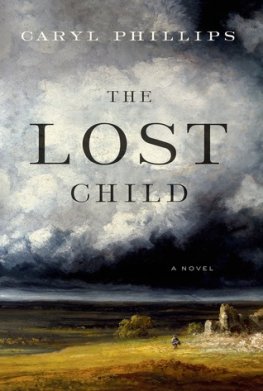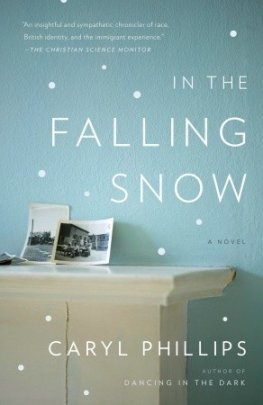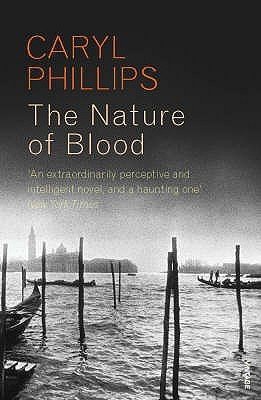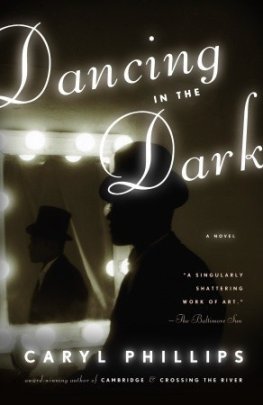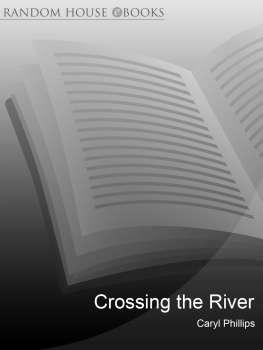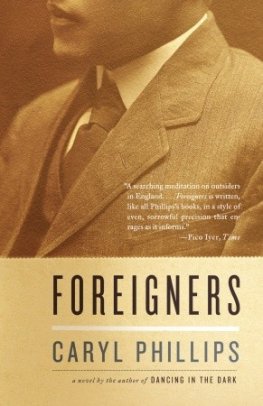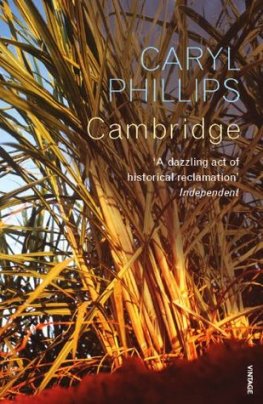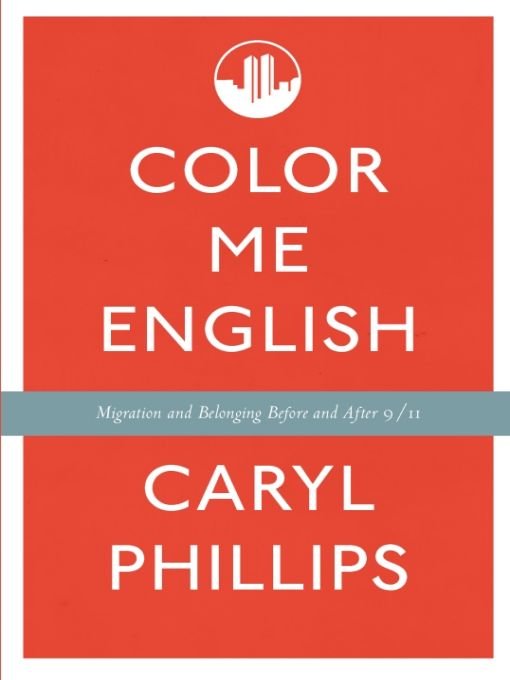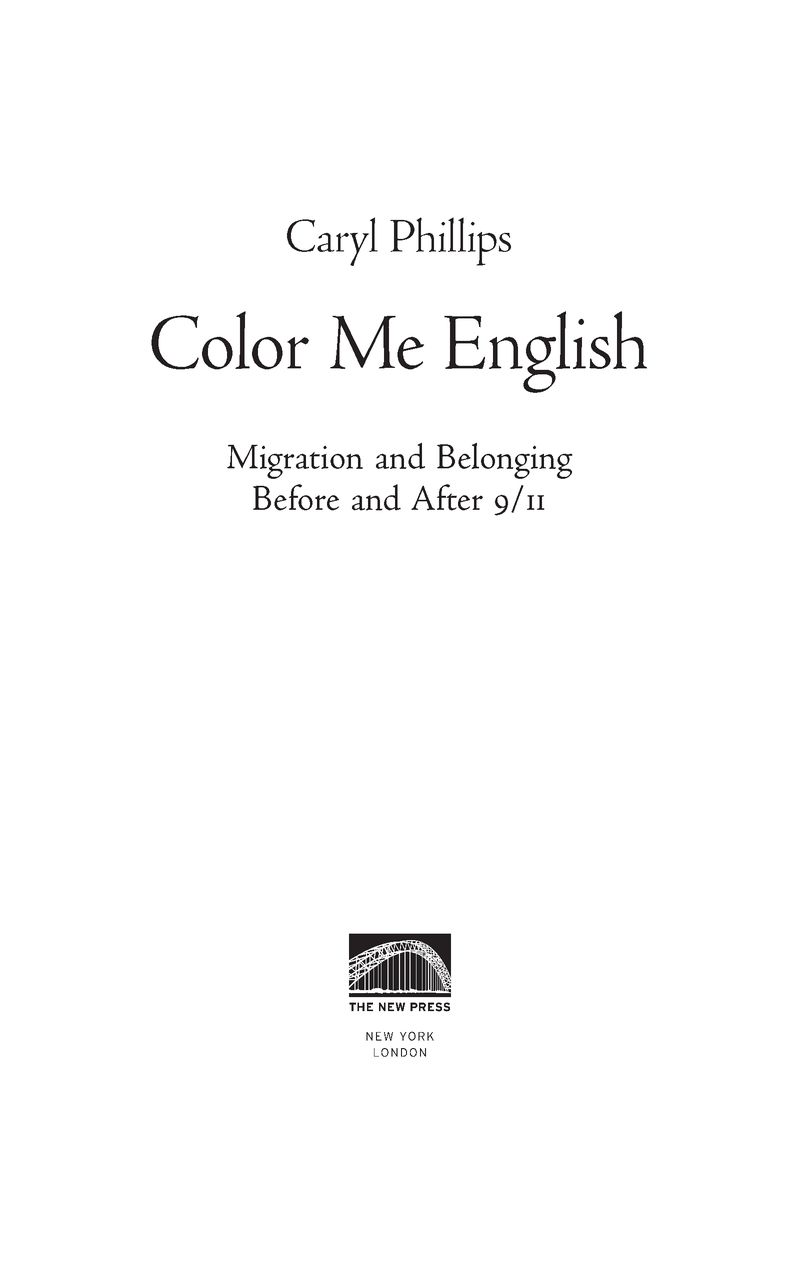Table of Contents
Also by Caryl Phillips
In the Falling Snow
Foreigners
Dancing in the Dark
A Distant Shore
A New World Order
The Atlantic Sound
The Nature of Blood
Crossing the River
Cambridge
Higher Ground
The European Tribe
A State of Independence
The Final Passage
Acknowledgements
I am fortunate to have been guided and assisted by Sarah Burnes, Georgia Garrett, Geoff Mulligan, and Stuart Williams. I continue to be grateful for the support of Leon Wieseltier of the New Republic, but my greatest debt is to Annalena McAfee. During her time as editor of the Guardian Review she backed my ideas, practically and editorially, and enabled me to travel and reflect both at home and abroad. Without her generosity this would be an entirely different book.
For Tatiana
Introduction
Color Me English
I was thirteen and entering my third year at Leeds Central High School, an all-boys grammar school in the centre of Leeds. This year marked a transition because for the first time I would no longer be the only black boy in the school. My brothers, Trevor and Malcolm, would be starting in the first year. Trevor was born at the start of September and Malcolm at the end of July and so, by a matter of a few days, they were both grouped together in the same school year. I remember feeling that my freedom was about to be traduced by the arrival of my younger brothers, but it never occurred to me to advise them on how to cope with the somewhat lonely racial situation at the school. We had been the only black children at our primary school, and we remained the only black family on a tough, all-white working-class estate. All three of us were able to cope. We knew when to fight and we knew when to run. In fact, most of my childhood was spent either fighting or running, and my only refuge was reading, which I tried to conceal as a slightly shameful secret for it did not square with the rough, aggressive demeanour that I had to cultivate in order to survive. Naturally enough, both of my brothers knew full well how to fight and how to run, which meant that there was no need for a conversation on the topic of racial isolation. And so, as the black population of Leeds Central High School tripled, I settled down to the novelty of no longer being the only one in the school.
Two weeks into the term it happened. One morning as the teacher called out our names, there was an extra name, like an afterthought, tagged on the end of the register. Ali. We all turned around and there, seated in the furthest corner, was a small moon-faced brown boy in a brand new school blazer that was clearly too big for him, and which served only to accentuate his diminutive stature. Ali looked terrified. Thirty pairs of eyes took in this oriental apparition and he began to blink furiously, as though he might at any moment burst into tears. The teacher did not bother to introduce the new boy, or explain why he was joining us two weeks into the term. He simply closed the register with a dull thud as he did every morning, and then he barked, Assembly. Chairs were scraped back and desk lids were opened and slammed shut as we formed a noisy procession and filed out towards the school hall. I assume that on that first morning Ali stood up and joined us, but I really have no idea. He was the new boy and so he was effectively ignored.
During the next few weeks, Alis palpable sense of isolation did not attenuate. As far as I could tell he had no friends, and nobody went out of their way to rescue him from his segregation. As a matter of daily routine, somebody in the classroom would throw a pencil, or a piece of chalk, and it would strike an unsuspecting boy on the back of the head. The boy who had been struck would turn angrily and try to discern who the assailant was. Fingers would quickly point towards Ali, and raucous cries of Hey, Pack it in, Ali would fill the room. How witty we all were. All the while, an increasingly shy and tormented Ali sat quietly at the back of the classroom visibly shrinking before our eyes. Boys can be merciless, and we certainly were. And because nobody told us to cease, this daily harassment of the newcomer in our midst continued unabated.
It almost doesnt need stating, but Ali was predictably bad at games. You can imagine the scene. On Tuesday afternoons we were bussed to the outskirts of west Leeds, where the school playing fields were located. The cross-country run was a brutal affair, featuring a near-vertical ascent the so-called steep hill and untold laps of the football pitches. We were divided into four houses named after famous scientists. Faraday, Priestley, Newton and Matthew Murray. Competition for house points was fierce, and we were all focused. Most of us had showered and changed back into school uniform by the time Ali rounded the final corner of the football pitch. He could be seen, through the late afternoon gloom, making his painfully slow way towards the school pavilion, his baggy white shirt blowing in the breeze with barely a torso to give it any shape or substance. His spindly legs always appeared to be on the point of buckling, but his arms still pumped like little pistons, and his chin was angled upwards for Ali was determined to cross the line. We all stood and laughed at him. Come on, Pack it in, Ali.
After the games period was over there was no school bus to take us back to town, so we were expected to leave en masse and take public transport to wherever we lived. A few boys lived in west Leeds, but the majority of us took a bus back into the city, and then transferred to whatever bus would take us home. One late Tuesday afternoon, I remember sitting upstairs on the top deck of a bus as it ferried the noisy schoolboys towards the city centre. Ali was sitting by himself some few seats behind me, and then I heard the commotion and turned around. A group of boys had grabbed Alis haversack and were rifling through it, pulling out his textbooks, his exercise books, his pencil case, everything. I saw terror on Alis face and immediately understood that he could not afford to lose these things. I knew how hard my own mother was working to make sure that her sons had uniforms and books and sports kit, and I assumed that Alis family were in the same predicament. One simply could not afford to be frivolous when it came to the practical aspects of getting on in England as a non-white child. And then I saw the bullies open the small top window, and I watched as they threw all of Alis books, one by one, out of the window of the speeding bus and into the middle of Headingley Road. They then handed him the empty haversack, their stupid faces flushed with success. I turned back around in my seat and faced the front, knowing that something inside me had changed.
When the bus stopped outside Leeds Central High School, I got up and spoke to Ali for the first time. Come with me, I said. Ali followed me down the stairs of the bus and on to the pavement. Were going to report this, okay? He nodded and then traipsed after me, as I walked up the flight of stone steps and into the school. Once there, I made my way to the main office where I was all too familiar with the sour-faced woman whose head poked out of the little hatch. She was the gatekeeper to the headmasters office, and I had been summoned before him on numerous occasions for various disciplinary reasons. In fact, only the previous week he had bestowed six strokes of the cane upon me for some alleged form of insubordination. As far as his secretary was concerned, I was not just a troublemaker, I was


